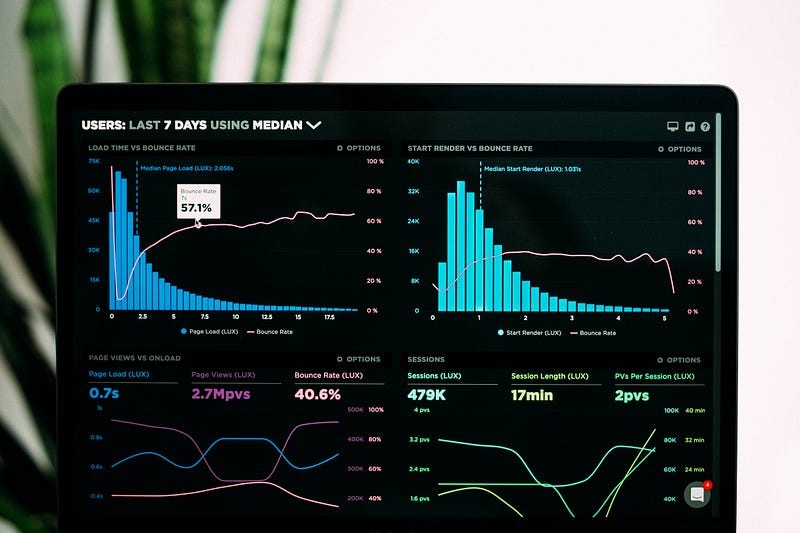TECHNOLOGY EXPLAINED
Benefits and best practices you need to know about

If you have ever browsed a website that recommends products or services, you have probably already come across affiliate links.
Affiliate links are special URLs that contain a code that is unique to the website you are using. They are used by businesses to track and reward partners who generate sales through their online platforms.
In this article, I will explain what affiliate links are, how they work, and what the benefits and best practices are for using them.
What is Affiliate Marketing?
Affiliate marketing is a type of online advertising where a business pays a commission to an affiliate partner for promoting its products or services. The affiliate partner can be a website owner, a blogger, a social media influencer, a podcast host, or any other online content creator.
The commission varies depending on the product or business an affiliate is associated with, but it comes at no cost to the consumer. If you click an affiliate link for a product or service, the price you see is the same whether you landed there via an affiliate link or a Google search.
When someone clicks on an affiliate link and makes a purchase, the business records that transaction and pays the affiliate partner a fixed amount, or a percentage of the sale.

How Do Affiliate Links Work?
Affiliate links work by using cookies to track clicks and conversions back to the affiliate partner. Cookies are small pieces of data that are stored on your browser when you visit certain websites.
Cookies were originally invented to help websites remember your preferences, login details, shopping cart items, and other information. However, affiliate sites use them to track where a purchase came from.
When you click on an affiliate link, it redirects you to the business’s website with a unique code attached to it. This code identifies which affiliate partner sent you there. The business’s website then sets a cookie on your browser that contains this code along with other information such as the date and time of your visit.
The cookie has an expiration date that varies depending on the business and its affiliate program terms. Some cookies expire within minutes of clicking a link, while others can last for days, weeks, or even months. The longer the cookie duration, the more chances an affiliate partner has to earn commissions from repeat purchases or delayed actions.

What Do Affiliate Links Look Like?
Affiliate links may look like regular URLs, but if you examine them a little more closely, you will be able to see the affiliate code in use.
For instance, here is an affiliate link for Amazon.com: https://amzn.to/3yRJ31w. If you click this link and make a purchase on Amazon, I will earn a small percentage of the final sale.
This might not look like an affiliate link, but it is. If you click it and look in your address bar, you won’t just see amazon.com. You will see additional characters have been added to the URL to track who sent you.
The image below is a good example of that. It shows the original link and the affiliate ID I use with the Amazon Associates program.

What are the Benefits of Using Affiliate Links?
For businesses, affiliate marketing can help increase their brand awareness, reach new audiences, drive more traffic to their website,
and boost sales without spending too much money upfront.
Businesses only pay commissions when they get results from their affiliates. That makes it a low-risk and cost-effective form of advertising.
For affiliate marketers, it is a passive income source. It can help them earn money by sharing products or services they like or use with their followers, readers, listeners, or viewers.
Affiliates can choose from thousands of products and services across different niches and industries, and then find ones that match their audience’s interests and needs.
Best Practices for Using Affiliate Links
To use affiliate links effectively and ethically, there are a number of best practices that both businesses and affiliates should follow.
Businesses should select reputable affiliates who have relevant and engaged audiences for their products or services. Businesses should also provide clear guidelines, support materials, and feedback to their affiliates to help them promote their offers effectively.
Affiliates marketers should only promote products or services they have personally used, tested, or trust. They should also disclose their relationship with businesses clearly and honestly to their audience.
In the United States, the FTC has the following guidance:
If you endorse a product through social media, your endorsement message should make it obvious when you have a relationship…with the brand. A “material connection” to the brand includes a personal, family, or employment relationship or a financial relationship — such as the brand paying you or giving you free or discounted products or services.
Affiliates should also provide value-added content such as reviews,
tutorials, or comparisons to help their audience make informed decisions.

Downsides to Using Affiliate Links
Of course, it’s not all sunshine and roses. Because affiliate links earn people money, it can be hard to know whether to trust the recommendations that affiliate marketers make.
For instance, if you search online for “the best 4K TVs” you will find dozens of websites listing TVs that all have affiliate links to Amazon, and other online retailers.
Are these really the “best” TVs, or are they TVs that will make the website owner some money when you click through to the store and buy one? Sometimes, it’s hard to tell.
Instead, look for websites that do hands-on testing with products. The Wirecutter, Consumer Reports, Rtings, and Tom’s Guide are good examples of this. They all use affiliate links, but they have a proven methodology that they use for rating products for a fair and honest review.
Conclusion
Affiliate links are a great way to monetize a blog or website, but you have to use them wisely and ethically.
They are not a magic bullet for making money online, but they can be a valuable tool if you use them with care and integrity.
https://jonathanwylie.com/list/8f7247300808
Still here? Great! I’m glad you made it to the end. If you enjoyed this article, here are some ways to show your appreciation:
- 👏 Click the hands to clap for this story!
- 📫 Subscribe to get all my latest posts
- 👋 Follow me on Medium
- Not a Medium member? Sign up with my exclusive referral link and get full access to everything on Medium for $5 per month or $50 annually.



